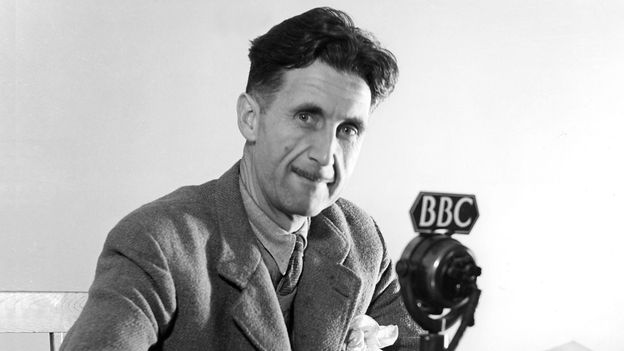The lapsing of copyright has triggered an avalanche of new editions from various publishers but not a total free-for-all. Letters and unpublished essays uncovered after Orwell’s death by the late scholar Peter Davison remain restricted. Hamilton has trademarked phrases such as “Big Brother is watching you” to ensure that Orwell merchandise continues to maintain certain standards, and to make money for the Orwell Foundation. And in the US, where copyright lasts for 95 years after publication, Animal Farm is protected until 2040, and Nineteen Eighty-Four until 2044. Given that many Trumpian conservatives are convinced the latter book speaks to them, perhaps that has saved us from a novel in which Joe Biden is a “woke” Big Brother.
Orwell-curious filmmakers face a steeper hurdle. Just days before her death, Sonia Orwell sold the movie rights to Chicago attorney Marvin Rosenblum, who produced Michael Radford’s adaptation in 1984. Even now, the US rights still reside with Rosenblum’s widow Gina. “So many suitors over the years have gone off to talk to her, and six months later they’ve come back pulling their hair out,” says Hamilton. A new version was in development for years with producer Scott Rudin and director Paul Greengrass, but its current status is unclear. “She has been unable to get a remake made, which I think is a scandal,” says Hamilton. “It’s a ridiculous waste of an opportunity.”
An unforgettable fictional world
Orwell wrote six novels, three classic works of non-fiction, and more than a million words of journalism, but in IP terms everything else is dwarfed by the twin peaks of his career: Nineteen Eighty-Four and Animal Farm. They are two very different books with a shared political agenda. First Orwell explained the rise of Soviet totalitarianism in the form of a farmyard allegory; four years later, he used dystopian science fiction to anatomise the methods of an all-powerful totalitarian state. One was a lesson from the recent past; the other a warning to the future. For as long as regimes seek to distort reality and suppress liberty, these books will have anxious readers.
Taylor recalls a recent event to promote his biography: “I said, ‘Put up your hand if you’ve read Nineteen Eighty-Four’, and 48 out of 50 hands went up. It was the same with Animal Farm. But nobody’s really read the earlier novels.” In the past three years there have been two new stage versions of Animal Farm, with Andy Serkis’s animated movie version currently in production after a decade of delays. Newman and Biles both suspected that there would be a flood of post-copyright Orwell novels but, so far, the only other attempt has been Katherine Bradley’s poorly reviewed The Sisterhood, another story about Julia. “I did feel a race against time,” says Biles. “Unnecessarily, it seems. It’s astonished me that we haven’t heard of similar things happening.”


